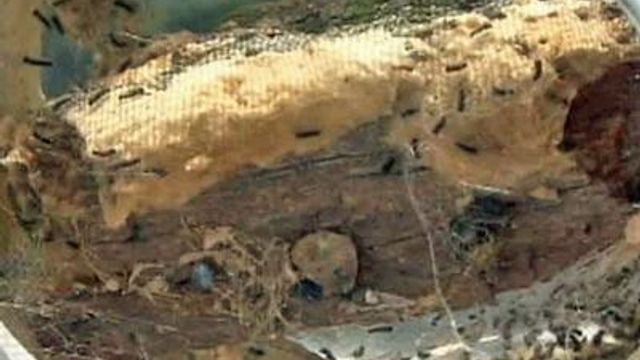State Fights Creepy, Crawly Invaders From North
Gypsy moths have been crawling their way south, devouring trees and causing allergies in their wake since the 1800s.
Posted — UpdatedThe moths have recently been spotted in counties bordering Virginia. "Right now, it's knocking on our doorsteps," said Matt Andresen, manager of the state Department of Agriculture's Gypsy moth program.
Although they are only a centimeter or two long as caterpillars, the tiny insects pack a powerful bite and can kill a tree.
"As they eat more and more leaves, they get bigger and bigger. As they get bigger, they get more hungry," Andresen said.
Their droppings, too, pose a hazard. Hair in the excrement can get into the air and cause allergies in people.
"Their droppings are just rather disgusting," Andresen said.
The Gypsy moth program manager recently found about 1,000 egg sacs on a single oak tree in Wise. The farmer who owns the tree said he had no idea they were there.
"Some people get the lottery, and I get this," farmer Gene Rooker said.
The state plans to drop a specialized pesticide over 500 acres in Wise as part of an attempt to stop the moths from spreading faster.
Gypsy moths, though, love oak trees, which does not bode well for Raleigh.
"Raleigh's the City of Oaks, and oak trees are Gypsy moths' favorite host species," Andersen said.
He estimated that the Triangle could start to see Gypsy moths within 10 to 15 years.
• Credits
Copyright 2024 by Capitol Broadcasting Company. All rights reserved. This material may not be published, broadcast, rewritten or redistributed.





